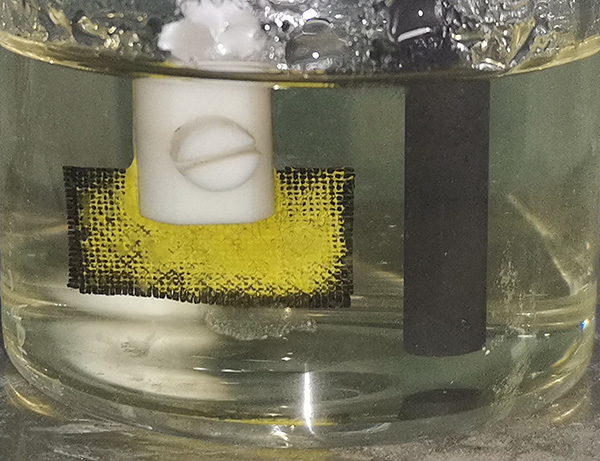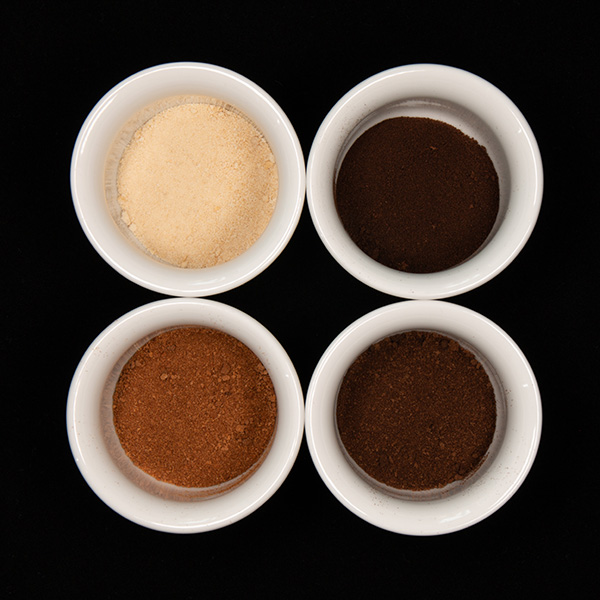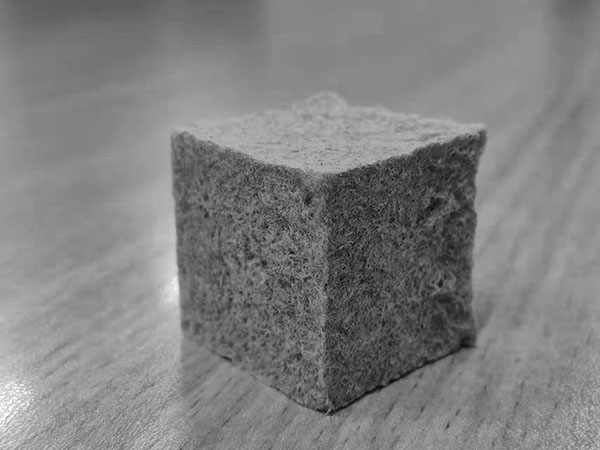Glittery metallic decorations keep the winter season cozy and bright. And silver jewelry adds to the glitz and glamour of holiday parties. However, microscopic particles of this metal have other unique properties, such as high electrical conductivity and antimicrobial activity, that researchers have applied to materials and biomedical products. Below are some recent papers published in ACS journals that report insights into how silver nanoparticles can be used to construct personal heaters, disinfect water and detect foodborne toxins. Reporters can request free access to these papers by emailing newsroom@acs.org.
“Ag Nanoparticles-Coated Shish-Kebab Superstructure Film for Wearable Heater”
ACS Applied Materials & Interfaces
Dec. 1, 2023
Traditional and synthetic polymer fibers don’t naturally produce their own heat. So, these authors present a method to adhere silver nanoparticles to polyethylene — a polymer used in some textiles and fabrics. They prepared a polyethylene film with microscopic structures similar to beads along a string, and then coated it in polydopamine followed by a spray of silver nanoparticles. Compared to cotton, this film rapidly warmed under simulated sunlight and when an electrical current was applied. The researchers say that these features make the nanomaterial an excellent candidate for wearable heaters.
“Integrating Navajo Pottery Techniques to Improve Silver Nanoparticle-Enabled Ceramic Water Filters for Disinfection”
Environmental Science & Technology
Oct. 23, 2023
Here, researchers mixed silver nanoparticles into a substance normally used as a coating for Navajo pottery and incorporated that coating in an antibacterial ceramic water filter. First, a Navajo potter heated pinyon pine resin in a traditional process, producing a substance called rosin, and then the team of researchers dissolved silver nanoparticles in the rosin. They applied a thin layer of the mixture onto a porous ceramic cartridge. When filtering water, the coated cartridges released dissolved silver ions at levels that inactivated bacteria but are considered safe for consumption. The new water treatment system was highly effective for at least 25 days.
“Characterizing a Silver Nanoparticle-Based Electrochemical Biosensor for Shiga Toxin Detection”
ACS Omega
Oct. 18, 2023
Not all E. coli bacteria cause foodborne illness, but consuming the strains that produce Shiga toxin can lead to gastrointestinal distress and, in severe cases, organ damage. But assessing food and water for this toxin requires complex, expensive techniques. As a step towards a simpler test, scientists coated silver nanoparticles in Shiga toxin antibodies and used them in an electrochemical assay. The new method’s performance was similar to current immunoassay and PCR techniques, a result that’s promising for creating an inexpensive detection tool, the researchers say.
###
The American Chemical Society (ACS) is a nonprofit organization chartered by the U.S. Congress. ACS’ mission is to advance the broader chemistry enterprise and its practitioners for the benefit of Earth and all its people. The Society is a global leader in promoting excellence in science education and providing access to chemistry-related information and research through its multiple research solutions, peer-reviewed journals, scientific conferences, eBooks and weekly news periodical Chemical & Engineering News. ACS journals are among the most cited, most trusted and most read within the scientific literature; however, ACS itself does not conduct chemical research. As a leader in scientific information solutions, its CAS division partners with global innovators to accelerate breakthroughs by curating, connecting and analyzing the world’s scientific knowledge. ACS’ main offices are in Washington, D.C., and Columbus, Ohio.
To automatically receive press releases from the American Chemical Society, contact newsroom@acs.org.
Note: ACS does not conduct research, but publishes and publicizes peer-reviewed scientific studies.





